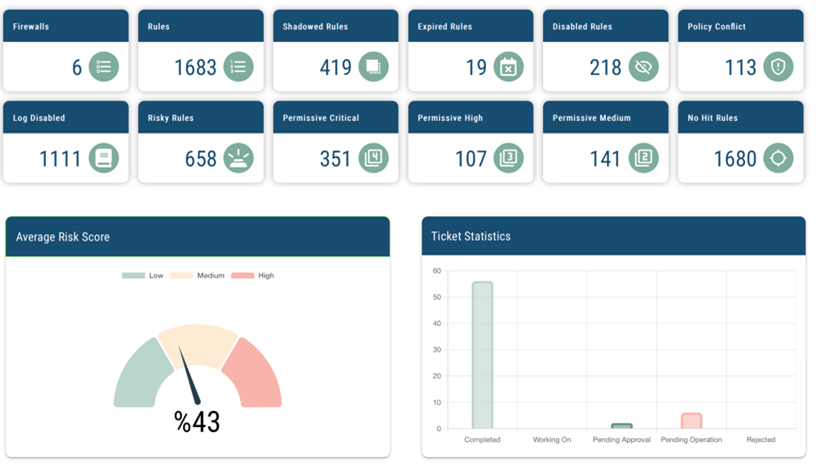Ensuring Compliance And Minimising the Cost of Audit Preparation
Problem:
In an era of escalating cyber threats, maintaining firewall compliance with best practices and standards is a non-negotiable requirement for enterprises. Not only is it mandated by regular audits and is a crucial aspect of securing their digital perimeter, but it also carries several other benefits. These include ensuring business continuity, fulfilling ethical responsibilities to stakeholders and the community, and gaining a competitive advantage.
However, the journey towards achieving firewall compliance is fraught with challenges. It involves identifying and rectifying non-standard rules such as unused, shadowed, disabled, expired, risky, or permissive ones. Furthermore, organizations must be prepared to face a variety of audit processes, including firewall rule set reviews, vulnerability assessments, and policy change management.
Compliance Management:
Manually maintaining firewall policies for compliance is a challenging task. Opting for a centralised management solution can effectively solve this issue. It detects non-standard rules and enables optimisation actions. Additionally, its capability to generate on-demand compliance-readiness reports aids in adhering to various regulations and standards
Compliance Management with Opinnate:
Opinnate has emerged as the most comprehensive solution to the challenges of firewall management. It equips enterprises with a robust tool to navigate the complex landscape of firewall compliance in a structured, efficient, and repeatable manner, offering several key benefits:


- easy detection of rules that fall outside of defined compliance requirements, with the ability to view details at both executive and detailed levels.
- several optimization actions that enterprises can undertake post-detection to enhance their security posture.
- support for on-demand or scheduled compliance-readiness reports, ensuring organizations are always prepared for audits.
- capabilities to address several regulations, such as HIPAA, standards like PCI-DSS and ISO27001, and best practices like NIST.
Why Opinnate?
What are the differences?
- All-in-one policy management
- No need for a management product from any firewall vendor
- More use case scenarios for real needs
- Short deployment and enablement
Why are these good for you?
- Lower TCO
- A comprehensive but simpler-to-use solution
- Less dependency to tools (Firewall management consoles, firewall analyzer)
- Less resource usage
